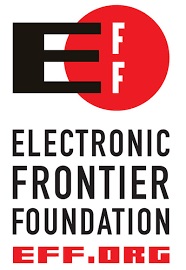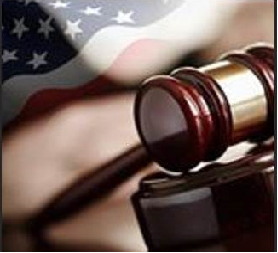Washington, D.C. – Reps. Hakeem Jeffries (D-NY), a member of the House Judiciary Committee, and Tom Marino (R-Pa) proposed legislation to create an alternative forum to facilitate the adjudication of “small” copyright claims.
Articles Posted in Intellectual Property Law
Trade Secret Law: Defend Trade Secrets Act Creates Federal Right of Action for Trade Secret Misappropriation.

Earlier this month, the Defend Trade Secrets Act (“DTSA”) became federal law. The DTSA grants the owners of trade secrets the right to sue in federal court for misappropriation of a trade secret that is “related to a product or service used in, or intended for use in, interstate or foreign commerce.” Previously, protection of trade secrets was offered only under state law, with most states having adopted a version of the Uniform Trade Secrets Act (“UTSA”). The new federal law will supplement, not replace, those state laws.
The DTSA, while it mirrors the UTSA in many respects, adds several notable elements. In addition to creating original jurisdiction in federal district court over civil actions brought under the law, the DTSA also provides for the ex parte seizure of property where necessary to prevent the disclosure of the trade secret at issue in the lawsuit. This seizure is permitted only in “extraordinary circumstances,” including those situations where immediate and irreparable injury to the plaintiff will result if the seizure is not ordered. The party requesting an ex parte seizure must post security and, in cases where such a seizure is obtained wrongfully, the DTSA makes damages available to the defendant. Moreover, the Act recognizes the problem of international trade secret theft. The provision allowing for ex parte seizure of property is “expected to be used in instances in which a defendant is seeking to flee the country.”
The DTSA also includes a provision permitting the entry of an injunction prohibiting a person from accepting employment if there is a sufficient threat of misappropriation of a trade secret. In lesser cases, the individual may begin employment but will be subject to conditions enunciated by the court.
Trade Secret Law: DTSA Now Provides More Protection for Whistleblowers

Washington, D.C. – The Defend Trade Secrets Act (“DTSA”) recently became federal law. This statute creates a federal right of action for misappropriation of trade secrets.
Among the provisions of the DTSA are new protections for whistleblowers. Under the DTSA, immunity is granted to persons who disclose a trade secret to a government official or attorney for the sole purpose of reporting or investigating a suspected violation of law. This immunity covers both civil and criminal liability under either federal or state trade secret law.
The DTSA also provides that trade secret information may be used in litigation by an employee who sues an employer alleging retaliation for having reported a suspected violation of law. The law requires that certain steps be taken during litigation to prevent disclosure of the trade secret.
Fox News Asserts Broadcast TV Database Infringes Copyright; EFF and Others Claim Fair Use

San Francisco, California – A media monitoring service that creates a text-searchable database of television and radio content is defending its fair use rights before a federal appeals court. The Electronic Frontier Foundation (“EFF”), New York University’s Technology Law and Policy Clinic, and Public Knowledge urged the court Wednesday to protect this innovative technology–and others that have yet to be developed–from being shut down by copyright infringement claims.
“Search engines and book digitization have proven the enormous social benefits of indexing and archiving the media,” said EFF Staff Attorney Kit Walsh. “This case is the latest in a long line of copyright-based challenges to these important tools, and it should fail just as the others have.”
In this case, Fox News sued a company called TVEyes, claiming the company’s broadcast content database–used by journalists, scholars, and political campaigns to study and monitor the national media–infringed its copyright in its programming. The district court acknowledged that the service is generally a fair use of copyrighted material, but then, in a second ruling, held that some of the features of the TVEyes database could facilitate infringement, including the ability to share links or search by date and time. In a departure from established legal precedent, the court ruled that this was enough to defeat TVEyes’ fair use defense.
United States Intellectual Property Law: Senate Judiciary Committee Approves Trade Secrets Bill
Washington D. C. – The United States Senate Judiciary Committee approved S. 1890, the Defend Trade Secrets Act (“DTSA”). If enacted, the bill would create a private cause of action in the federal courts for trade secret misappropriation.
Under Indiana’s Access to Public Records Act, a trade secret is defined as:
information, including a formula, pattern, compilation, program, device, method, technique, or process, that:
(1) derives independent economic value, actual or potential, from not being generally known to, and not being readily ascertainable by proper means by, other persons who can obtain economic value from its disclosure or use; and
(2) is the subject of efforts that are reasonable under the circumstances to maintain its secrecy.
The proposed legislation uses a similar definition:
[T]he term “trade secret” means all forms and types of financial, business, scientific, technical, economic, or engineering information, including patterns, plans, compilations, program devices, formulas, designs, prototypes, methods, techniques, processes, procedures, programs, or codes, whether tangible or intangible, and whether or how stored, compiled, or memorialized physically, electronically, graphically, photographically, or in writing if —
(A) the owner thereof has taken reasonable measures to keep such information secret; and
(B) the information derives independent economic value, actual or potential, from not being generally known to, and not being readily ascertainable through proper means by, the public.
The DTSA would be the civil counterpart to the Economic Espionage Act of 1996, a criminal statute that uses the same definition of “trade secret” as the DTSA.
This would be the first time that individuals would have a private, federal right of action for theft of trade secrets. Presently, those seeking redress in civil court for theft of trade secrets must resort to claims based on state law or seek to have a claim for injunctive relief filed by the Attorney General.
The DTSA, if enacted, would address the current patchwork of state laws protecting trade secrets. While those state statutes are similar, with many states having enacted some form of the Uniform Trade Secrets Act (“UTSA”), they are not identical.
The DTSA does not preempt any other law. Thus, where a state’s law governing trade secrets is more generous, a plaintiff retains the ability to sue under that state law also, either in state court or as a pendant claim in a federal lawsuit.
The relief offered under the DTSA contains such remedies as monetary damages, including royalty payments, reimbursement of actual losses caused by the defendant and trebling of a monetary award where punitive damages are found to be appropriate. Injunctive relief and attorneys’ fees may also be recoverable.
Countering the Growing Intellectual Property Theft Threat by Enhancing Ties Between Law Enforcement and Business
In 2008, a new federal law creating stricter penalties for criminals who engaged in intellectual property theft was enacted to keep pace with globalization, e-commerce, and technology advances.
Fast forward to 2016: Technological advances continue at an even faster pace, dramatically
|
|
Intellectual Property Theft 101
Intellectual property can be an idea, an invention, a design, a business process, or even a creative expression. All are protectable under the law.
Once stolen, intellectual property can generate a great deal of money for the thieves. But there are other consequences. Intellectual property theft, which includes theft of trade secrets, the trafficking of counterfeit goods, and digital piracy, results in billions of dollars in lost profits annually. Failure to protect the nation’s intellectual property undermines confidence in the economy, removes opportunities for growth, erodes America’s technological advantage, and disrupts fairness and competitiveness in the marketplace.
Some intellectual property thefts pose a more far-reaching and serious threat to the U.S. than economic loss to the rights holders. These thefts can also put public safety at risk through the sale of counterfeit pharmaceuticals,
Within its intellectual property rights violations program, the FBI prioritizes its investigations and focuses the majority of its resources on cases involving theft of trade secrets, counterfeit goods that pose a threat to human health and safety, and copyright and infringement matters with a nexus to national security or organized crime or that pose a significant economic impact.
Along with its partners at the National Intellectual Property Rights Coordination Center, the FBI also participates in several intelligence-driven national initiatives, including:
– – – |
|
increasing the threat posed by criminals who steal trade secrets, produce and/or traffic in counterfeit products, and infringe on copyrights. One important factor in this increase is the global expansion of online marketplaces, which aids international and domestic criminal organizations in trafficking in counterfeit goods.
The Department of Justice recently announced a new strategy that involves partnering more closely with businesses in an effort to combat these types of crimes more effectively. According to Attorney General Loretta Lynch, “Through this new approach, we intend to provide information and resources to individuals and companies that will help them identify and disrupt attempts on their intellectual property, extend greater protection to American commerce as a whole, and safeguard the health and safety of individual Americans.” The Federal Bureau of Investigations (“FBI”), working with its investigative partners at the National Intellectual Property Rights Coordination Center (“NIPRCC”), will play an integral part in this strategy.
The FBI has already been collaborating for years with brand owners, copyright holders, and trademark holders because in an effort to prevent the harm that intellectual property theft causes: legitimate businesses lose billions of dollars in revenue and suffer damaged reputations, consumer prices go up, the U.S. and global economies are robbed of jobs and tax revenue, product safety is reduced, and sometimes lives are even put at risk. The FBI’s efforts with these businesses to date have involved shared information, aggressive criminal initiatives based on current or emerging trends, and investigations.
The FBI has now begun expanding its efforts to work with third-party entities, such as online marketplaces, payment service providers, and advertisers, that may inadvertently enable the activities of criminals.
Third-party online marketplaces draw consumers to their sites with competitive pricing and a sense of security, but criminal counterfeiters exploit these marketplaces to gain an appearance of legitimacy, access to far-reaching advertising, and efficient sales transactions.
Payment service providers, such as credit card payment processors and related payment alternatives, also give counterfeiters the appearance of legitimacy when they provide payment options that consumers mistakenly interpret to mean that the businesses they service are legitimate.
Online advertising systems and platforms enable website owners to outsource the process of monetizing their website traffic. Criminals have begun exploiting advertising as an alternative revenue stream, drawing traffic to their sites by offering counterfeit products for sale or pirated digital content for download.
The FBI finds that there are significant benefits to working with these third-party entities. According to David Farquhar, who heads up the FBI’s Intellectual Property and Cyber-Enabled Crimes Unit at the NIPRCC, “We’re not only broadening awareness of the crime problem, we can also obtain information about crime trends, get investigative leads that will help us identify criminals, and collect evidence of criminal activity.” Farquhar added that the FBI will assist these companies with refining their own analytical tools and techniques for uncovering fraud.
Also new in its approach to intellectual property theft is an enhanced relationship between the FBI’s criminal and counterintelligence personnel when working theft of trade secrets cases. A trade secrets case worked under the counterintelligence program, which occurs when the involvement of state-sponsored actors is suspected, will be referred to a criminal squad if no state sponsorship is found. And when criminal investigators begin to suspect the involvement of a state sponsor, the case will be referred to the counterintelligence squad.
Celebrating Copyright Week 2016

Almost three years ago, the Electronic Frontier Foundation (“EFF”)
began its efforts to reform the U.S. copyright reform process (see the
Electronic Frontier Foundation’s call to Congress for the Next Great Copyright Act). This week, EFF and others are also celebrating the third annual Copyright Week.
Reporting Computer, Internet-related or Intellectual Property Crime
Internet-related crime, like any other crime, should be reported to appropriate law enforcement investigative authorities at the local, state, federal, or international levels, depending on the scope of the crime. Citizens who are aware of federal crimes should report them to local offices of federal law enforcement.
A guide to reporting intellectual property crime:
|
Type of Crime |
Appropriate federal investigative law enforcement agencies |
|
Copyright piracy (e.g., |
|
|
Trademark counterfeiting |
|
|
Theft of trade secrets/Economic Espionage |
The U.S. Department of Justice has also produced a guide, “Reporting Intellectual Property Crime: A Guide for Victims of Counterfeiting, Copyright Infringement, and Theft of Trade Secrets,” available as a PDF file. This guide is contained in Appendix C of the Report of the Department of Justice’s Intellectual Property Task Force (October 2004). The guide also contains the following checklists for reporting intellectual property crime to law enforcement:
Checklist for Reporting a Copyright Infringement or Counterfeit Trademark Offense (PDF)
Checklist for Reporting a Theft of Trade Secrets Offense (PDF)
Other government initiatives to combat cybercrime include:
National Intellectual Property Rights Coordination Center
The IPR Coordination Center’s responsibilities include:
• Coordinating U.S. government domestic and international law enforcement activities involving IPR issues.
• Serving as a collection point for intelligence provided by private industry, as well as a channel for law enforcement to obtain cooperation from private industry (in specific law enforcement situations).
• Integrating domestic and international law enforcement intelligence with private industry information relating to IPR crime, and disseminating IPR intelligence for appropriate investigative and tactical use.
• Developing enhanced investigative, intelligence and interdiction capabilities.• Serving as a point of contact regarding IPR law enforcement related issues.
The STOP Initiative (www.stopfakes.gov)
The stopfakes.gov website provides information to consumers and businesses on intellectual property, including information on how to report trade in fake goods.
Those with specific information regarding intellectual property crime can submit an IPR Coordination Center Complaint Referral Form.
House Judiciary Committee Approves Patent Reform Bill by Substantial, Bipartisan Vote
Washington, D.C. – The House Judiciary Committee recently approved the Innovation Act (H.R. 9) by a vote of 24-8. This bipartisan bill takes steps to combat the ever-increasing problem of abusive patent litigation. The legislation addresses abusive practices taking place in federal courts.

The Innovation Act is supported by a wide range of groups that include stakeholders from all areas of the economy representing businesses of all kinds from every corner of the United States, including independent inventors and innovators.
Key Components of the Innovation Act include:
Congresswoman Susan Brooks of Indiana Listed as one of D.C.’s Top 50 Women in Tech
Indianapolis, Indiana – Congresswoman Susan Brooks, who represents the northern third of Indianapolis, was recently named as one of the District of Columbia’s Top 50 Women in Tech. Her lawmaking focus includes legislation that will cause “our laws need to catch up with technology.”
Rep. Brooks, the Republican co-chair of the Congressional High-Tech Women’s Caucus, represents a burgeoning area of startups and entrepreneurship in the technology sector. In her first term, Brooks co-chaired a subcommittee focused on emergency preparedness, response and communications. Since then, she’s introduced the Social Media Working Group Act, which passed the House twice, and is awaiting action in the Senate. If passed, the bill would codify the Homeland Security Department’s Social Media Working Group, which meets regularly to improve the department’s social media techniques. The bill would also bring representatives from academia and the private sector into the working group.
“I think our laws need to catch up with technology and some of the other things that we are also focused on,” Brooks said. “Data breach notification is one of the top issues facing companies that hold personal information about our customers and our employees. We need to bring the government up to speed there, too.”
 Indiana Intellectual Property Law News
Indiana Intellectual Property Law News

